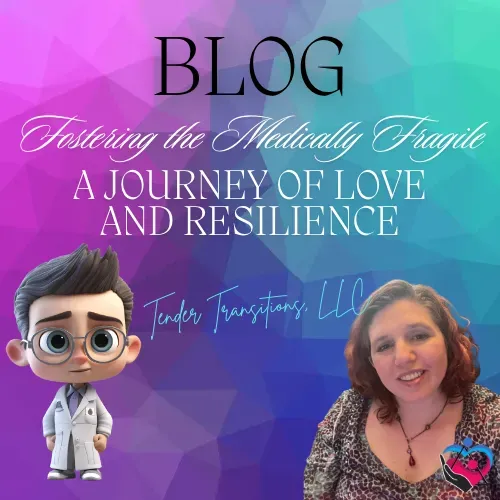Requirements to Be a Foster Parent of Medically Fragile Children: A Comprehensive Guide
Fostering a child is a significant and life-changing commitment, and when it comes to caring for medically fragile children—those with serious and complex medical conditions—the requirements and responsibilities are even more extensive. Medically fragile children require specialized care, including regular medical treatments, frequent appointments, and often the use of complex medical equipment. This blog post outlines the essential requirements and qualifications needed to become a foster parent for medically fragile children, ensuring you are well-prepared for this vital role.
1. Basic Foster Parent Requirements
Before delving into the specifics of caring for medically fragile children, it’s important to understand the general requirements for becoming a foster parent:
Background Checks:
All prospective foster parents must undergo comprehensive background checks, including criminal records and child abuse clearances. This ensures the safety and well-being of the children placed in your care.
Home Study:
A home study is conducted to evaluate the suitability of your home environment for fostering. This involves interviews, home inspections, and assessments of your family dynamics to ensure a safe and supportive environment for children.
Training:
Initial training for foster parents covers child development, trauma, and the foster care system. This foundational training is essential before moving on to specialized training for medically fragile children.
Financial Stability:
While you don’t need to be wealthy, you must demonstrate financial stability to ensure that you can provide for the child’s basic needs. This includes having a stable income and budgeting for any additional costs related to fostering.
2. Specialized Training for Medically Fragile Foster Care
Caring for medically fragile children requires specific knowledge and skills beyond standard foster care training:
Medical Training:
You’ll receive specialized training on the medical conditions affecting the child. This includes understanding the specific needs of the child’s condition, learning how to administer medications, and handling medical equipment. Training often involves hands-on practice and simulations.
Emergency Care:
Training will cover how to respond to medical emergencies, including recognizing signs of distress and performing first aid or CPR if necessary. Knowing how to act quickly and effectively in emergencies is crucial for the well-being of a medically fragile child.
Care Coordination:
You’ll learn how to coordinate care with healthcare providers, manage medical appointments, and navigate insurance and medical systems. This involves understanding how to communicate with doctors, manage treatment plans, and advocate for the child’s needs.
3. Home Environment Requirements
The physical environment of your home must be adapted to meet the needs of a medically fragile child:
Accessibility:
Your home must be accessible and safe for the child, considering any mobility issues they might have. This may involve making modifications such as installing ramps or grab bars, and ensuring that the home is free of hazards.
Medical Equipment:
If the child requires medical equipment, such as oxygen tanks, feeding tubes, or specialized beds, your home must be equipped to accommodate and safely use this equipment. Proper storage and organization of medical supplies are also important.
Safety Measures:
Implement safety measures to protect the child from potential hazards. This includes securing medical equipment, childproofing the home, and ensuring that all areas are safe for the child’s specific needs.
4. Personal Qualities and Skills
In addition to meeting technical requirements, certain personal qualities and skills are crucial for successfully fostering a medically fragile child:
Empathy and Compassion:
Foster parents must have a deep sense of empathy and compassion, understanding the challenges and needs of medically fragile children. Being able to provide emotional support and comfort is essential.
Patience and Resilience:
The demands of caring for a medically fragile child can be intense and challenging. Patience and resilience are important qualities for managing the stresses and setbacks that may arise.
Organizational Skills:
Managing medical appointments, treatments, and care routines requires strong organizational skills. Being able to keep track of schedules, medications, and documentation is essential for effective care.
Advocacy:
Foster parents must be skilled advocates, working to ensure that the child receives the necessary medical care, services, and support. This includes collaborating with healthcare providers and navigating complex medical systems.
5. Support Systems and Resources
Having a strong support system is vital for foster parents of medically fragile children:
Professional Support:
Access to medical professionals, including doctors, nurses, and therapists, provides ongoing guidance and support. These professionals can offer advice, answer questions, and help manage the child’s care.
Foster Care Agencies:
Your foster care agency will provide case management, resources, and support. They can connect you with other foster parents and offer assistance with any challenges you might face.
Support Groups:
Joining support groups for foster parents of medically fragile children can provide valuable emotional support and practical advice. These groups offer a network of understanding and shared experiences.
6. Conclusion
Becoming a foster parent for medically fragile children is a profound commitment that requires a combination of specialized training, personal qualities, and a supportive home environment. By understanding the specific requirements and preparing thoroughly, you can ensure that you are well-equipped to provide the care and support that these children need. While the role can be demanding, it is also incredibly rewarding, offering the opportunity to make a meaningful difference in the lives of children facing significant health challenges. If you feel called to this path, thorough preparation and support will help you succeed in providing a safe and nurturing environment for medically fragile children.

